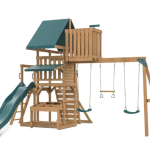Why Every Small Business Owner Should Understand “Earnouts”!

Why Every Small Business Owner Should Understand “Earnouts”!
Many business exits are based on the seller being connected to a business for a period after completion through what’s called an ‘earnout’. Earnouts usually operate on the basis that a payment is made to the seller at completion, and then further payments are made over time based on the performance of the business.
Earnouts do work, however, they can be a thorny topic – they are often a serious concern for sellers who face the risk that if performance is not sustained, they may not actually see any future payments.
When used in the right context, earnouts can be an effective mechanism to share risk (which can get the deal over the line) by keeping the seller in the business and incentivised after the business changes hands, ensuring expected business performance continues and the buyer receives the value they have paid for.
To work well in any sale, the earnout needs to be understood by both buyer and seller and structured well – in a way that both parties are comfortable with. So, how does this work in practice?
Why consider an earnout?
Earnouts are often requested by a buyer as a way of ensuring the value in the business fully transfers when it is sold. They often tie the seller to the business for a set period of time (in some cases, up to five years) so that it can continue to operate and maintain the same level of performance. They’re also often used as a way of ensuring there is a long enough period for appropriate transfer of their knowledge of the business.
It is often raised during the deal making process as a risk-sharing mechanism for the buyer concerned about future performance and/or as a way for the seller to access a higher sale price because if they are prepared to accept some risk.
Risks relating to earnout arrangements
There are also potential risks for using a deal structure that involves using earnouts.
Earnouts are often contingent on the founders staying on board with the business to lead it and transition it for a substantial period. The risk here is that founders can butt heads with the new owners on how best to run the business, and generally having a hard time adjusting to the new world order in which they have moved from being the one calling the shots to being an employee.
This loss of control is a common but often unacknowledged factor that contributes to post acquisition failure. But there are also many other potential thorns along the way – including the way in which the earn out is calculated and appropriate controls over how the buyer runs the business during the earn out period.
The best way to deal with the issues associated with earnouts is a solid approach and solid contract!
Structuring earnouts
Proportion
The first consideration is what proportion of the purchase price will be paid at completion (the point of sale) versus the amount calculated based on the earnout period.
Earnouts will typically form an increased proportion of the total sale price where:
- a business valuation is based on future potential;
- there are risks in the buyer being able to fully transfer or sustain the value of the business.
Deals where the value is clearly related to sustained performance of the business (i.e. it is mature) and/or where that performance is likely to continue (i.e. income and profit is relatively stable) are less likely to have a significant earnout.
Calculation
Calculation of the earnout is either a set figure or based on a sliding scale. A set-figure earnout will either trigger and pay the full sum, or not trigger and no sum is paid. In this way, the seller is sharing in the risk of the buyer not achieving that revenue or profit figure post-completion. With a sliding scale approach, the seller’s payment is calculated as a percentage of the revenue or profit for set periods. Often, once a minimum target is hit, the earnout is calculated based on the performance.
Earnouts based on revenue rather than profit can be easier to manage. However, earnouts in larger deals are regularly based on the latter.
Controls
There needs to be a balance between protecting the seller and impacting the buyer’s ability to operate the business the way they want. You will need to consider what operational controls will be relevant for you and be clear on these when you structure the earn out. For example, who will run the business? Will you follow a business plan? Will the buyer be restricted in how it deals with the assets in the business, or in the way in which it invests into the business?
There are also financial controls that can be drawn on, for example to ensure sufficient resources and working capital (or particular assets) are provided by the buyer for the business to realise its potential. And it is also important to get clear on the way in which the earn out accounts will be prepared – including what types and levels of expenses will be included and excluded from the calculations. Prevention of any trading with the clients outside of the business is also worth considering.
If you choose to structure your deal with an earn out, it’s important to ensure that both sides are clear and that the resulting contracts are robust enough to protect future payments and balance control. Using an experienced deal team is your best strategy for navigating this fine balancing act – without blowing your deal up in the process.
Tags: buying a business selling a business exiting a business
About the author

Joanna Oakey
Lawyer and Managing Partner, Aspect Legal
Joanna Oakey is a commercial lawyer and deal maker with a passion for business, who has worked with hundreds of businesses during her 2 decades in the ...









